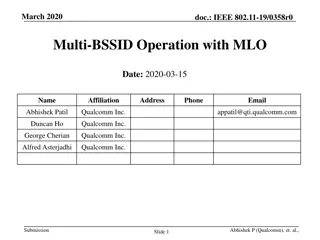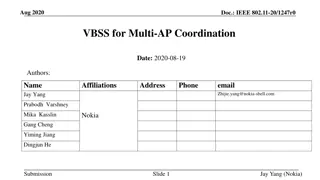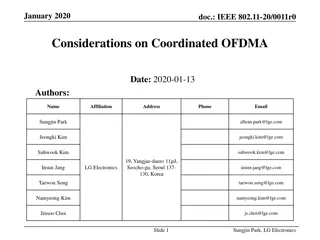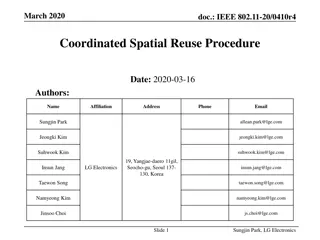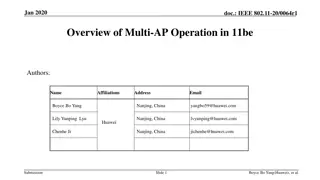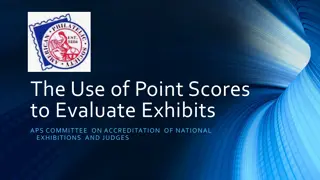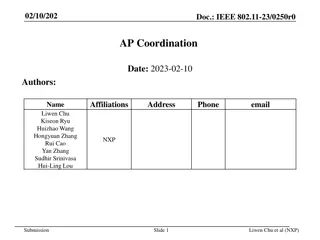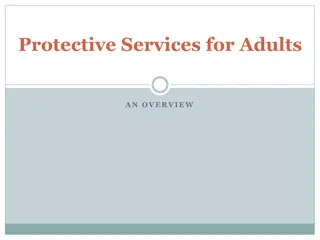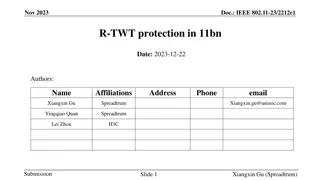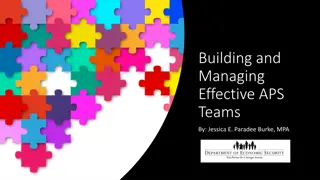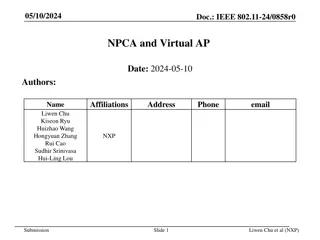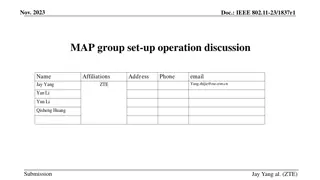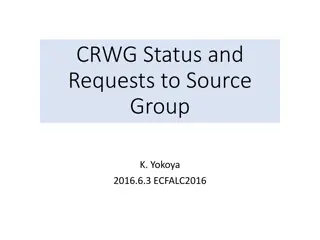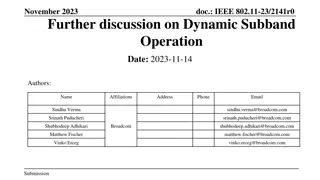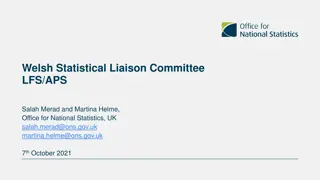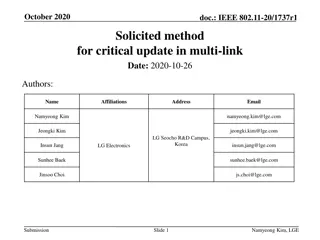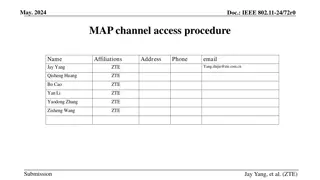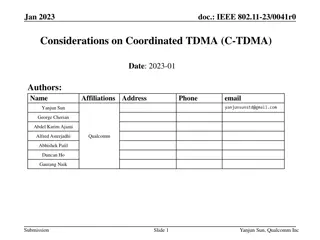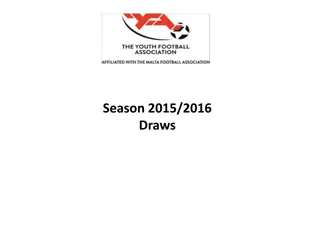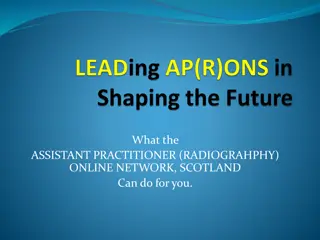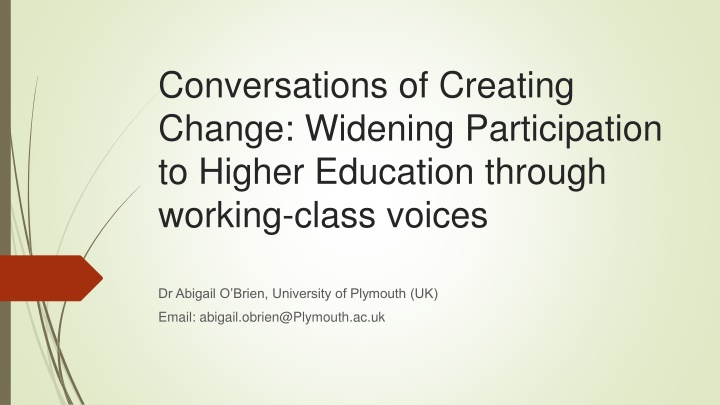
Exploring Working Class Students' Post-18 Decision-Making Process in Higher Education
Dive into a qualitative research study focusing on the decision-making process of working-class students regarding post-18 choices in higher education. Discover insights on influences, social networks, and access to information, shedding light on the importance of open days and access in shaping students' decisions.
Download Presentation

Please find below an Image/Link to download the presentation.
The content on the website is provided AS IS for your information and personal use only. It may not be sold, licensed, or shared on other websites without obtaining consent from the author. If you encounter any issues during the download, it is possible that the publisher has removed the file from their server.
You are allowed to download the files provided on this website for personal or commercial use, subject to the condition that they are used lawfully. All files are the property of their respective owners.
The content on the website is provided AS IS for your information and personal use only. It may not be sold, licensed, or shared on other websites without obtaining consent from the author.
E N D
Presentation Transcript
Conversations of Creating Change: Widening Participation to Higher Education through working-class voices Dr Abigail O Brien, University of Plymouth (UK) Email: abigail.obrien@Plymouth.ac.uk
Widening Participation is not only about increasing the numbers of entrants to higher education, it also involves engaging learners from currently under- represented groups (Gordon, et al. 2010:169).
The study 10-month qualitative research with 12 students from the two schools. Mixed gender and social class. Semi-structured interviews, 3 with each student over the 10- month period. At the end of year 12, beginning of year 13 and one final interview after UCAS deadline. Between interview meetings there were meetings for narrative elicitation tasks such as a Tree of Life (REPSSI, 2016), Network mapping task and journal work.
Research questions What influences the post 18 choices of working class young people ? (Main RQ) How do young people s social networks shape their decision-making? What access do young people have to information for decision-making post 18? The project focused on post-18 decision-making, with an aim to find out more about working class students decision-making processes.
Variety of data collection methods To help answer the questions a range of data was collected from questionnaire responses, interview transcripts, Trees, maps, journal entries in the form of phone notes, post-it notes etc.
Open days and access Everything came together in that open day...and actually that was the open day that I wasn t going to go to...that one day completely shaped where I m gonna go (Jane, middle class student, Interview 3) Poppy also discussed the financial barriers of students accessing open days or visiting universities and how these visits sometimes had an impact on how informed their decisions would be as a result of visiting or not visiting a university (Poppy, working class student, Interview 3) (O Brien, 2022:245) Open days were useful to many students in order to get a sense of if they felt they belonged . This sense of belonging has been shown to be important for full participation. For example one of the reasons those from lower socioeconomic backgrounds may be more likely to drop out of university is social and cultural fit (Crawford et al, 2017:117).
Knowledge is power Slack et al. (2014) hot , warm and cold information and knowing While many of the middle-class students were relatively familiar with the field of higher education, the working-class students are dealing with a very unfamiliar field (Reay, 2009:1110). Example: you could have one-on-one with your parents about it cos they ve been through the same thing so they could have like more in-depth like detail of what it s like and what you have to do (..) whereas people like my mum and dad have nothing (.) had no like (..) knowledge of what I had to do at uni (Kieran, working-class, male)
Aspiration findings Importance has often been placed on raising working class aspirations when it comes to Higher Education (DfES, 2004; Grant 2017; BBC, 2018) However, regularly discussed by students within the findings from this project was high working class aspiration and family support to encourage said aspiration (O Brien, 2022: 248). Harrison and Waller (2018) have similarly argued that recent large case-studies have shown aspirations to generally not be low.
References BBC News (2018) Ofsted chief says poor white communities lack aspiration and drive , in BBC News: Family and Education. Accessed online at: www.bbc.co.uk/news/education-44568019 Crawford, C., Dearden, L., Micklewright, J., & Vignoles, A (2017) Family Background & University Success: Differences in Higher Education Access and Outcomes in England. New York: Oxford University Press. Department for Education and Skills (DfES) (2004) The Future of Higher Education . London: The Stationary Office. In Matheson, D (2008) An Introduction to the Study of Education. 3 rd edn. Abington: Routledge Gordon, J., Dumbleton, S., Miller., C (2010) 'We thought we would be the dunces' - From a vocational qualification to a social work degree: an example of widening participation in social work education , in Widening Participation and Lifelong learning. 12, pp.169-184. DOI: https://doi.org/10.5456/WPLL.12.S.169 Grant, T (2017) The Complexity of aspiration: the role of hope and habitus in shaping working-class young people s aspirations to higher education , in Children s Geographies. 15(3), pp.289-303.
References (2) Harrison & Waller (2018) Challenging discourses of aspiration: The role of expectations and attainment in access to higher education , in British Educational Research Journal. 44(5), pp.914-938 O'Brien, A (2022) Widening Participation in Higher Education: Exploring factors that prevent secondary school students, from disadvantaged/non-traditional backgrounds, from engaging in Higher Education with elite universities. PhD thesis. University of Exeter, United Kingdom [Online]. Available at Widening Participation in Higher Education: Exploring factors that prevent secondary school students, from disadvantaged/non-traditional backgrounds, from engaging in Higher Education with elite universities (exeter.ac.uk) (accessed: 31 January 2023) Reay, D (2009) 'Strangers in Paradise'? Working Class Students in Elite Universities , in Sociology. 43(6), pp.1103 1121 REPSSI (2016) Tree of Life: A workshop methodology for children, young people and adults. Johannesburg: REPSSI. www.repssi.org Slack,K., Mangan, J., Hughes, A & Davies, P (2014) Hot , cold and warm information and higher education decision-making , in British Journal of Sociology of Education. 35(2), pp.204-223

